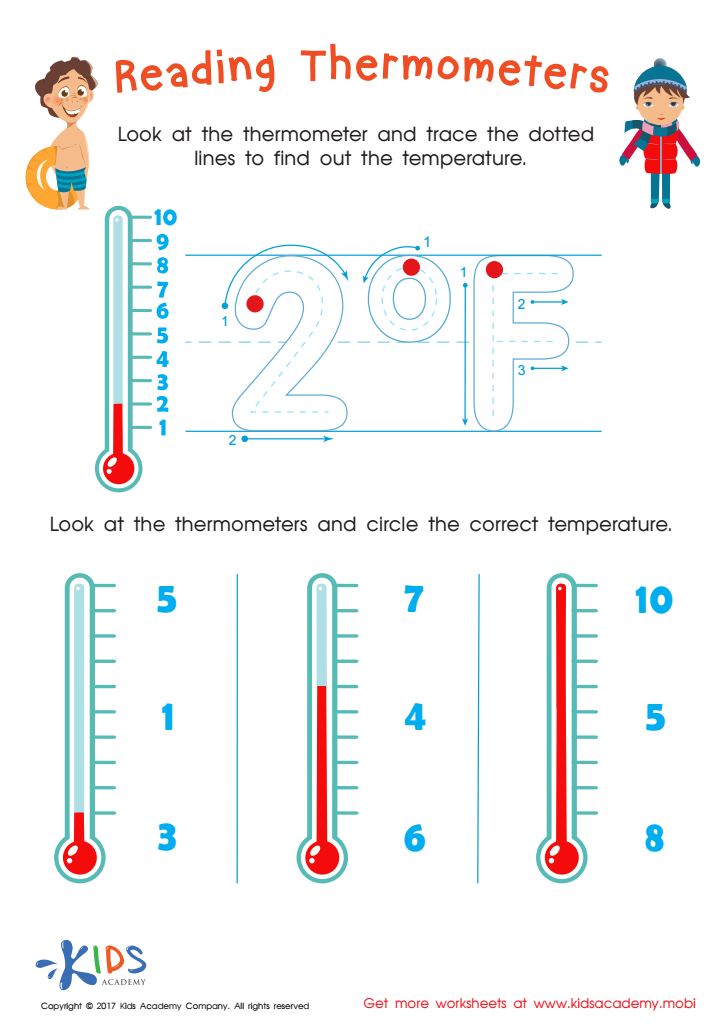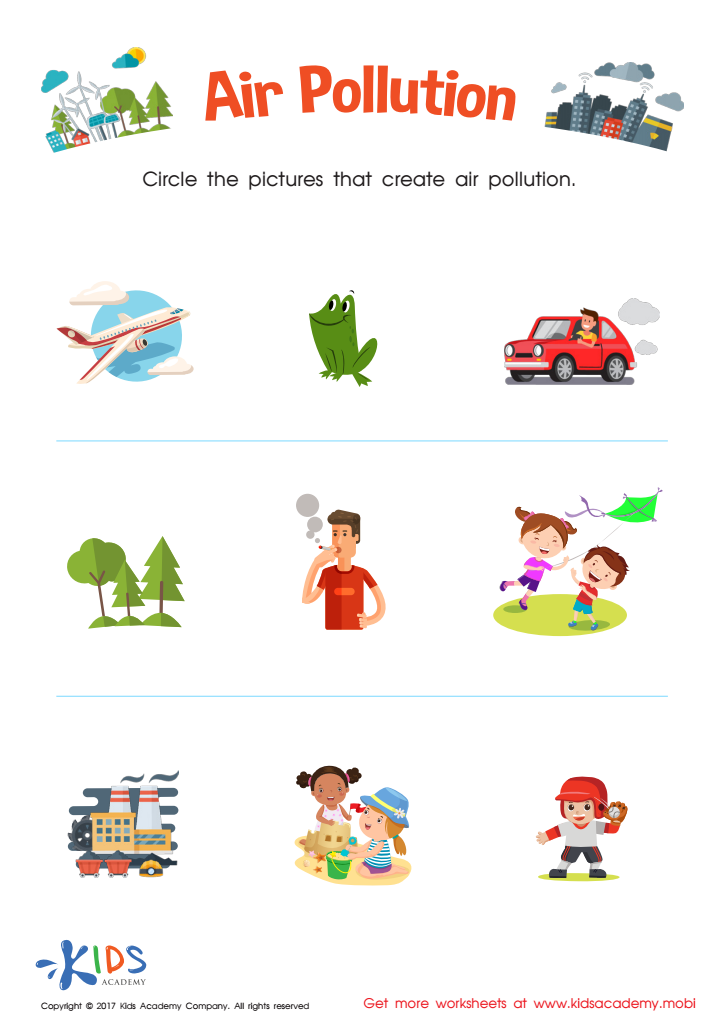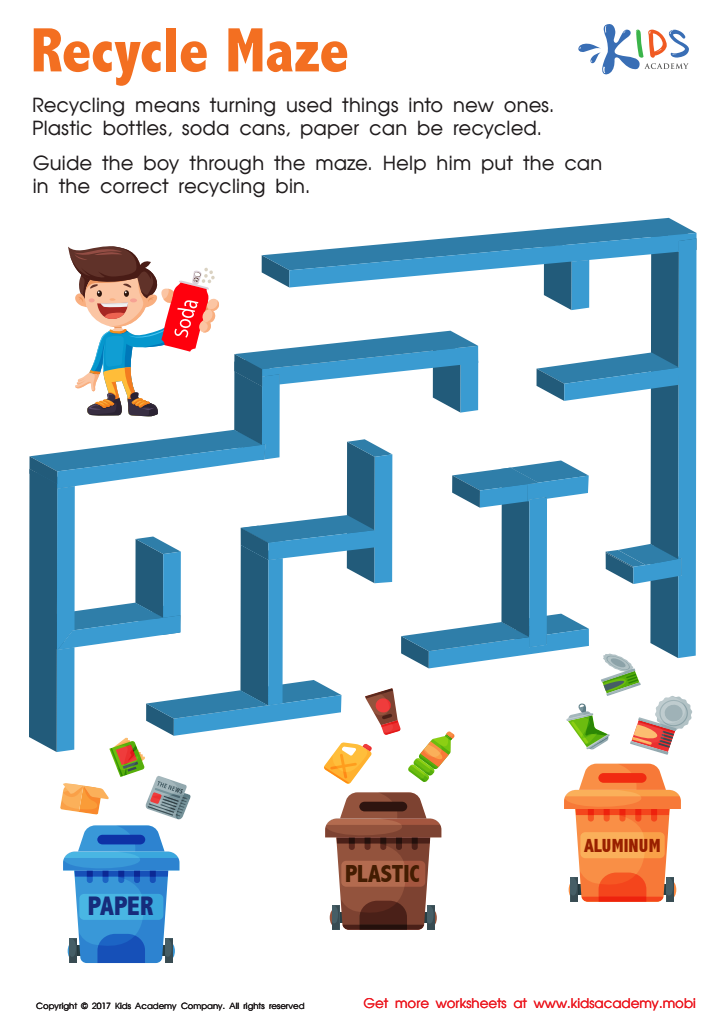Our Planet and Environment Worksheets for Ages 6-8
3 filtered results
-
From - To
Discover our engaging and educational "Our Planet and Environment Worksheets for Ages 6-8" on Kids Academy! These printable worksheets offer young learners fun and interactive activities designed to teach them about the world around us. Covering topics such as earth sciences, ecosystems, pollution, and conservation, our worksheets support children's curiosity and environmental awareness. With colorful illustrations and age-appropriate content, they are perfect for both classroom and at-home learning. Help your child appreciate the beauty of our planet and the importance of protecting it with these comprehensive and thoughtfully crafted resources. Available for instant download!


Reading Thermometers Printable


Air Pollution Worksheet


Recycle Maze Worksheet
Parents and teachers should care about instilling a love and respect for our planet and environment in children aged 6-8 for several key reasons:
First, fostering an early awareness and appreciation for nature can shape lifelong attitudes and behaviors. When children understand the importance of the environment, they are more likely to make responsible choices as they grow older—such as recycling, conserving water, and protecting wildlife.
Second, teaching about the environment encourages curiosity and learning. Exploring natural habitats, understanding ecosystems, and observing the cycles of life can make science and geography fun and engaging for young minds. This foundation in science can spark a child’s interest in subjects that are vital for our future.
Finally, environmental education promotes a sense of responsibility and stewardship. At ages 6-8, children are forming their moral and ethical values. By teaching them to care for their surroundings, we help instill principles of empathy, kindness, and cooperation. They learn that they are part of a larger community and that their actions can impact the world around them.
Parents and teachers play a vital role in guiding young children’s understanding of their role in protecting our planet. This education is not only good for the environment but also essential in nurturing caring, informed, and proactive future citizens.
 Assign to My Students
Assign to My Students
















